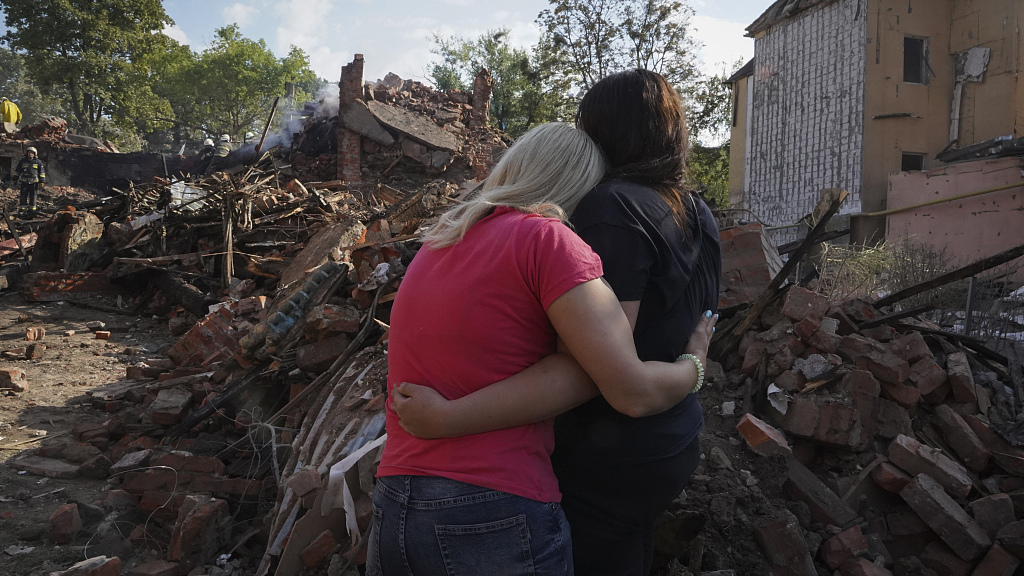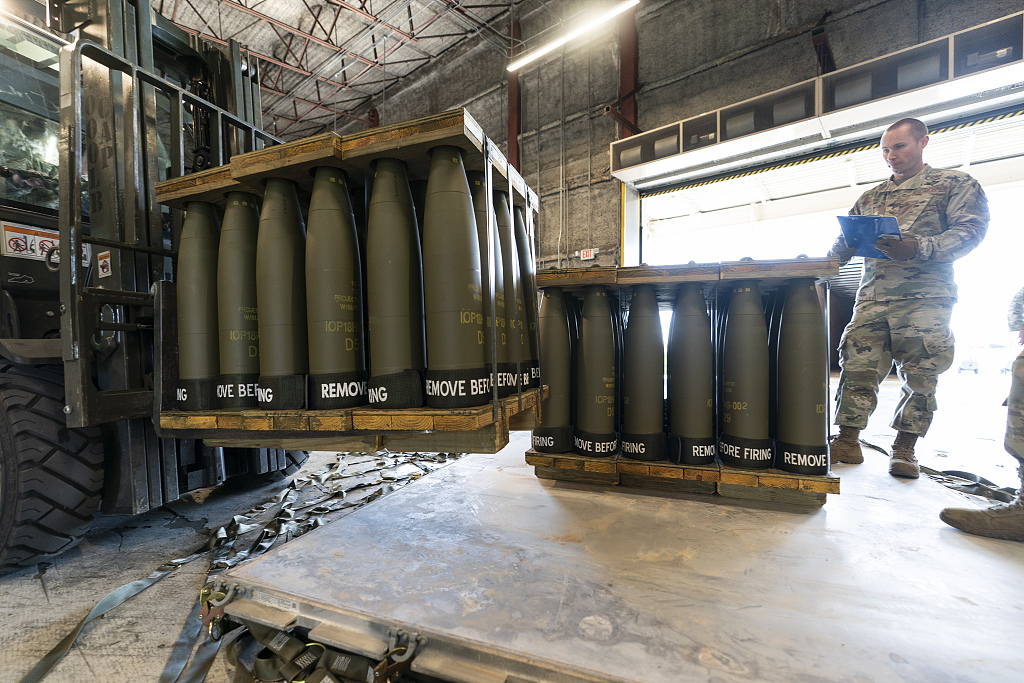
Ukrainian women hug in front of a building destroyed during a missile strike in Kharkiv, Ukraine, August 18, 2022. /CFP
Ukrainian women hug in front of a building destroyed during a missile strike in Kharkiv, Ukraine, August 18, 2022. /CFP
Editor's note: Adriel Kasonta is a London-based foreign affairs analyst and commentator. He is the founder of AK Consultancy and former chairman of the International Affairs Committee at Bow Group, the oldest conservative think tank in the UK. The article reflects the author's opinions and not necessarily the views of CGTN.
Today marks six months since President Vladimir Putin decided to launch a "special military operation" in Ukraine.
Notably, it is essential to note that what is currently unfolding before our eyes in Kyiv started not a few months ago but in 2014, when democratically elected President Viktor Yanukovych was overthrown by the Euromaidan thugs in a protest orchestrated by the U.S.
Since then, the new political elites installed in Kyiv have embraced a radical shift in Ukraine's geopolitical orientation by rejecting the country's linguistic, cultural and historical ties to its eastern neighbor and promoting a pro-Western, über-nationalistic narrative oriented at reshaping the country's complex identity.
With far-right and neo-Nazi groups trained by the Central Intelligence Agency gaining a significant influence over policy-making in Ukraine, the revolutionary process of "Ukrainization" have taken place at the expense of the Russian heritage. And its most radical form resulted in the armed conflict and killing of residents of Donetsk and Lugansk regions in eastern Ukraine for the last eight years.
Keeping this in mind and being aware of Kyiv's unwillingness to implement the Minsk Agreements, Russia could not allow this to continue unchecked and had to put the agony of its people living in the regions to an end as well as safeguard the peace and security of the motherland.
One could ask how Ukraine can pose a serious threat to a country as powerful as Russia. And an answer to that question can only be satisfying if we look at the broader picture and consider that Ukraine's foreign policy is made not in Kyiv but Washington.
Therefore, it is no coincidence that the collective West has attempted to drag Ukraine into NATO, breaking the "not one inch eastward" assurance made by then U.S. Secretary of State James Baker in February 1990.
It is also worth noting that even though Kyiv is not a member of NATO, the U.S. and its Western allies have invested much time and effort in slowing Russia's "special military operation." By sending vast sums of money and enormous quantities of weapons to Ukraine, the West has effectively turned this conflict into its proxy war against Russia.

A U.S. Air Force officer checks pallets of 155 mm shells ultimately bound for Ukraine, at Dover Air Force Base, Delaware, April 29, 2022. /CFP
A U.S. Air Force officer checks pallets of 155 mm shells ultimately bound for Ukraine, at Dover Air Force Base, Delaware, April 29, 2022. /CFP
As a result, it is futile to believe that any negotiations between Kyiv and Moscow would bring a lasting peace if we understand Ukraine's role in the U.S.'s global strategy that aims at weakening Russia by fighting "until the last Ukrainian" and pressuring every sovereign nation under the sun to support this hubristic effort at the expense of its own national interest.
Although the U.S. has partially succeeded by persuading Western countries to participate in its mission to keep the unipolar world order intact, the international community has largely rejected this outdated status quo.
Non-Western nations are perfectly aware that the current order is based on self-serving rules that have only brought disorder and misery to the world, desperate for a more just and democratic arrangement between independent states on the international stage.
Interestingly, actions of both China and India have suggested that the two emerging powers are fed up with the U.S.'s liberal-globalist egocentrism that has been cynically undermining international law and the genuine sovereignty of peoples and civilizations for decades.
China and India seem to understand that only multipolarity can safeguard their unique values and traditions currently endangered by the U.S.'s irrational claims concerning Western universalism.
This neo-colonial thinking has been best described by U.S. Secretary of the Treasury Janet Yellen, who notably argued that a new Bretton Woods system must be based on "the values that liberal democracies want to uphold," which therefore normalized effective discrimination against values represented by non-Western countries.
With Russia determined to withstand the U.S.'s pressure in Ukraine, we all should keep in mind that the special operation's significance goes far beyond maintaining regional stability. This East European country has become the place where it is being decided if all countries are equal or if some countries are more equal than others.
(If you want to contribute and have specific expertise, please contact us at opinions@cgtn.com. Follow @thouse_opinions on Twitter to discover the latest commentaries in the CGTN Opinion section.)

